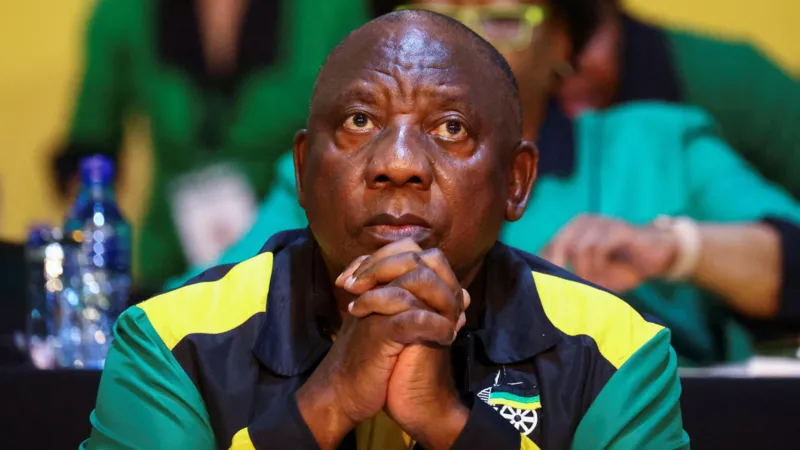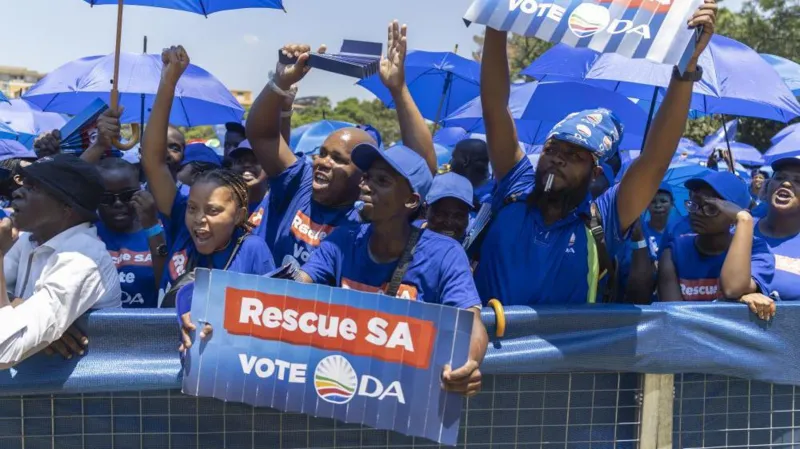
In a monumental shift in South African politics, the African National Congress (ANC) is poised to share power after losing its parliamentary majority for the first time since the end of apartheid in 1994. With 97% of voting districts counted, the ANC's share of the vote stands at 40%, significantly down from the over 50% it has consistently achieved in previous elections. The Democratic Alliance (DA) follows with 22%, the MK party led by former President Jacob Zuma at 15%, and the Economic Freedom Fighters (EFF) at 9%.
The ANC's decline can be attributed to widespread public discontent over high levels of corruption, persistent unemployment, and frequent power outages. This sentiment is reflected in voters like one woman who, having supported the ANC for 30 years, switched her allegiance to the DA due to the cost-of-living crisis and unreliable electricity supply. "This result is not good. I wanted it out of government. We need to give someone else a chance," she said.
Political analyst Sanusha Naidoo stated that even with votes still being counted, the ANC is unlikely to reach the 50% mark required to form a government independently. "The best it could hope for is 45%," she said, emphasizing the need for the ANC to enter into coalition talks to retain power.
However, forming a coalition presents significant challenges. ANC chairperson Gwede Mantashe has already ruled out an alliance with the DA, which holds the second-highest vote share, citing policy misalignments. The ANC's commitment to black empowerment policies and the newly signed National Health Insurance (NHI) Bill are non-negotiable terms for any potential coalition partner. The DA opposes both of these initiatives, creating a substantial hurdle for collaboration.
Despite this, DA leader John Steenhuisen has not entirely dismissed the possibility of an alliance with the ANC. He outlined several non-negotiables for such a partnership, including respect for the rule of law, a social market economy, zero tolerance for corruption, and a focus on job creation. However, Steenhuisen has ruled out any coalition with the EFF or MK party, which advocate for the nationalization of mines and land redistribution, policies he argues would lead to economic instability.

The possibility of an alliance between the ANC and the MK party remains tenuous. Although Zuma has suggested he might support the ANC if President Cyril Ramaphosa were replaced, MK spokesman Nhlamulo Ndhlela dismissed any collaboration while Ramaphosa remains in office. This internal discord within the ANC further complicates potential coalition talks.
Another potential partner is the EFF, led by former ANC youth leader Julius Malema. The ANC and EFF currently co-govern Johannesburg, South Africa's largest city. However, expanding this partnership to the national level would require significant negotiation and compromise.
The DA, on the other hand, has already formed a pre-election pact with ten smaller parties, agreeing to a coalition if they collectively gain enough votes to unseat the ANC. This coalition, however, does not include the EFF or MK, both of whom would be crucial to achieving a majority.
As South Africa awaits the final election results, expected over the weekend, the political landscape is set for intense negotiations and potential realignments. The ANC's unprecedented loss of its parliamentary majority marks a critical juncture in the country's democratic journey, highlighting the electorate's growing demand for change and accountability.
This election, featuring a record 70 parties and 11 independents, has underscored the evolving dynamics of South African politics. The coming days will reveal whether the ANC can navigate these complexities to form a stable government, or if the country is poised for a new political era with a different coalition at the helm.











